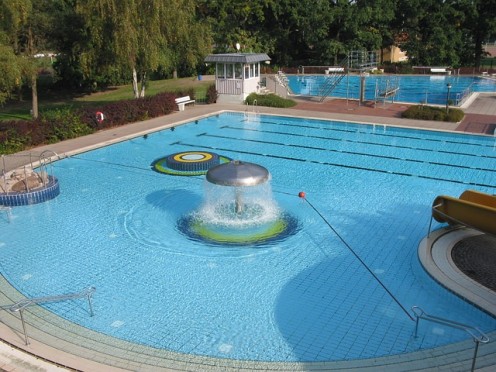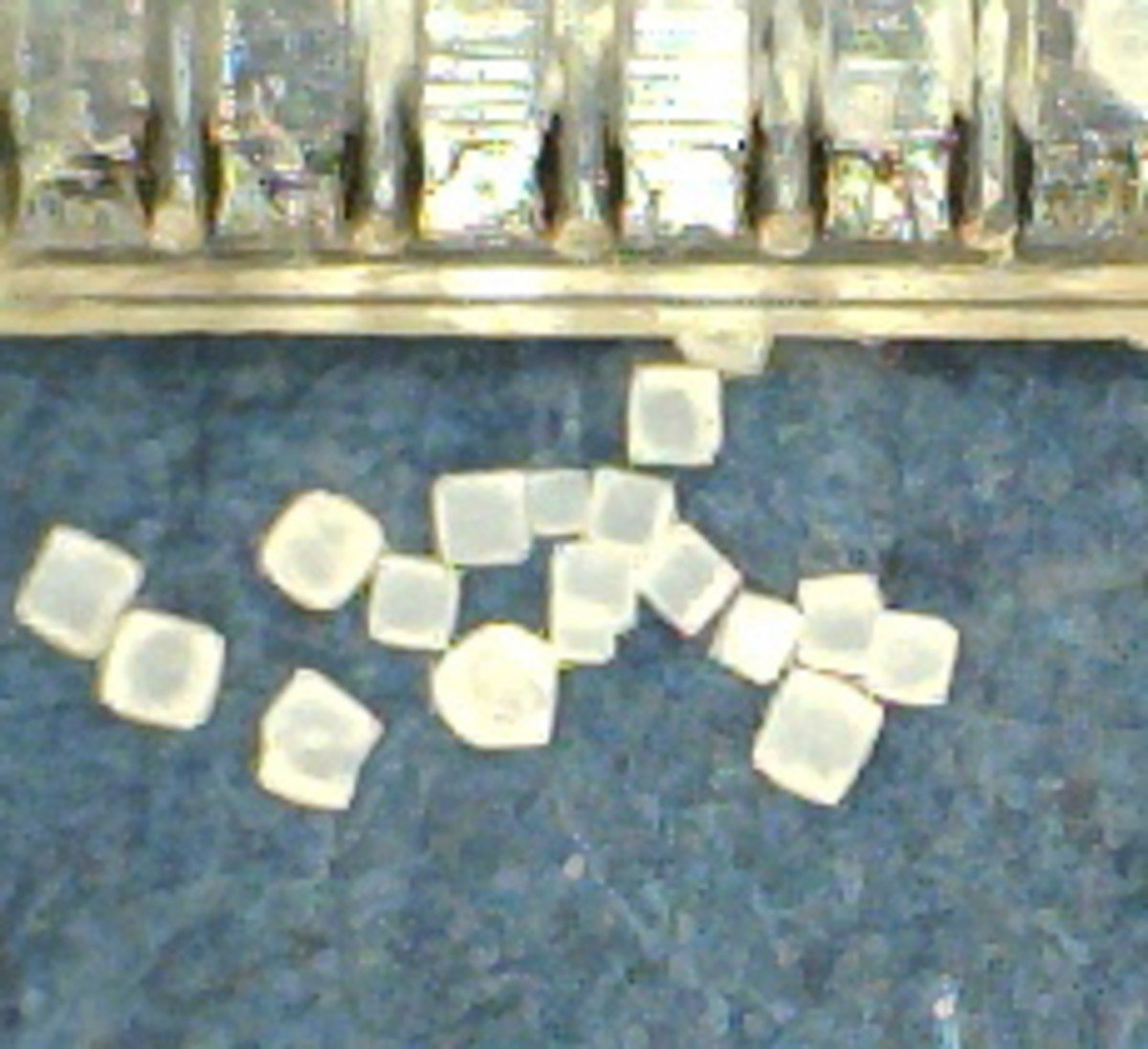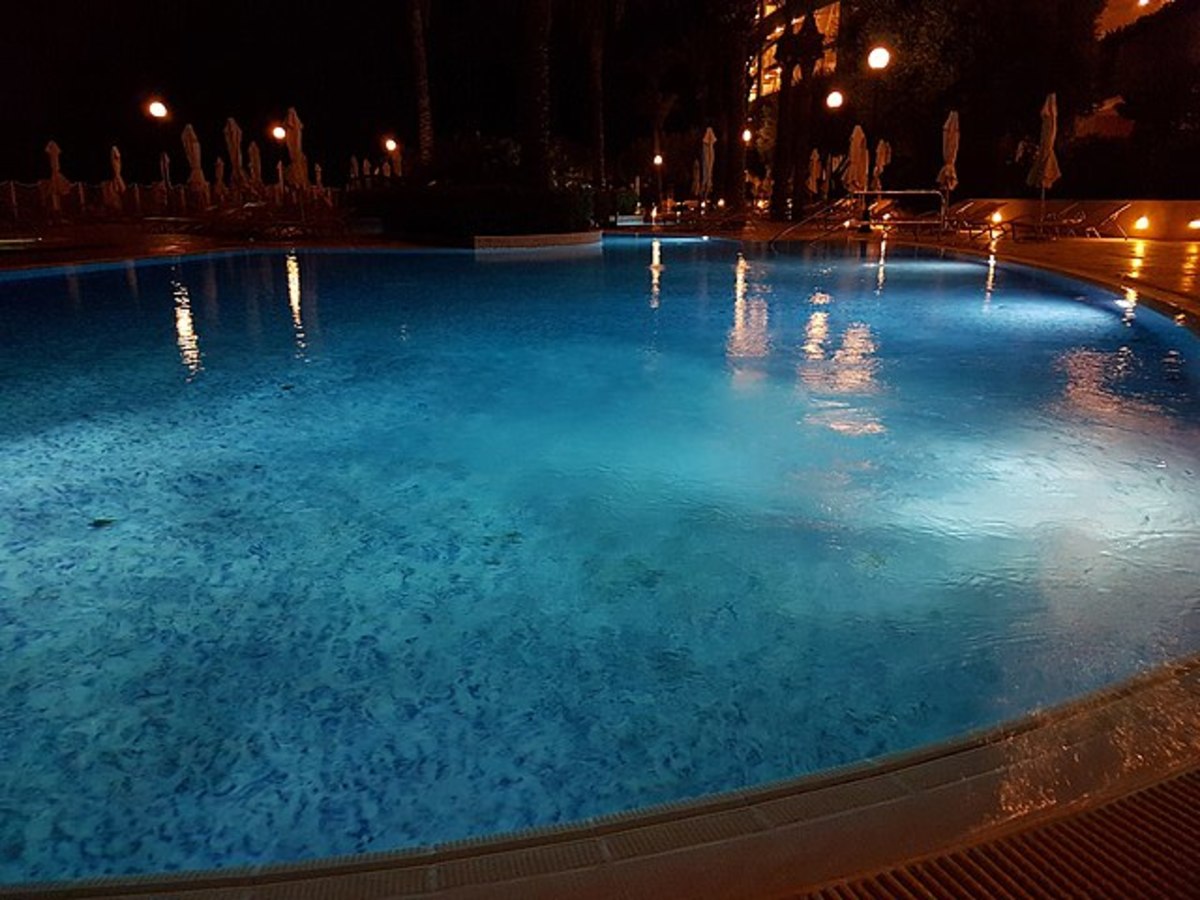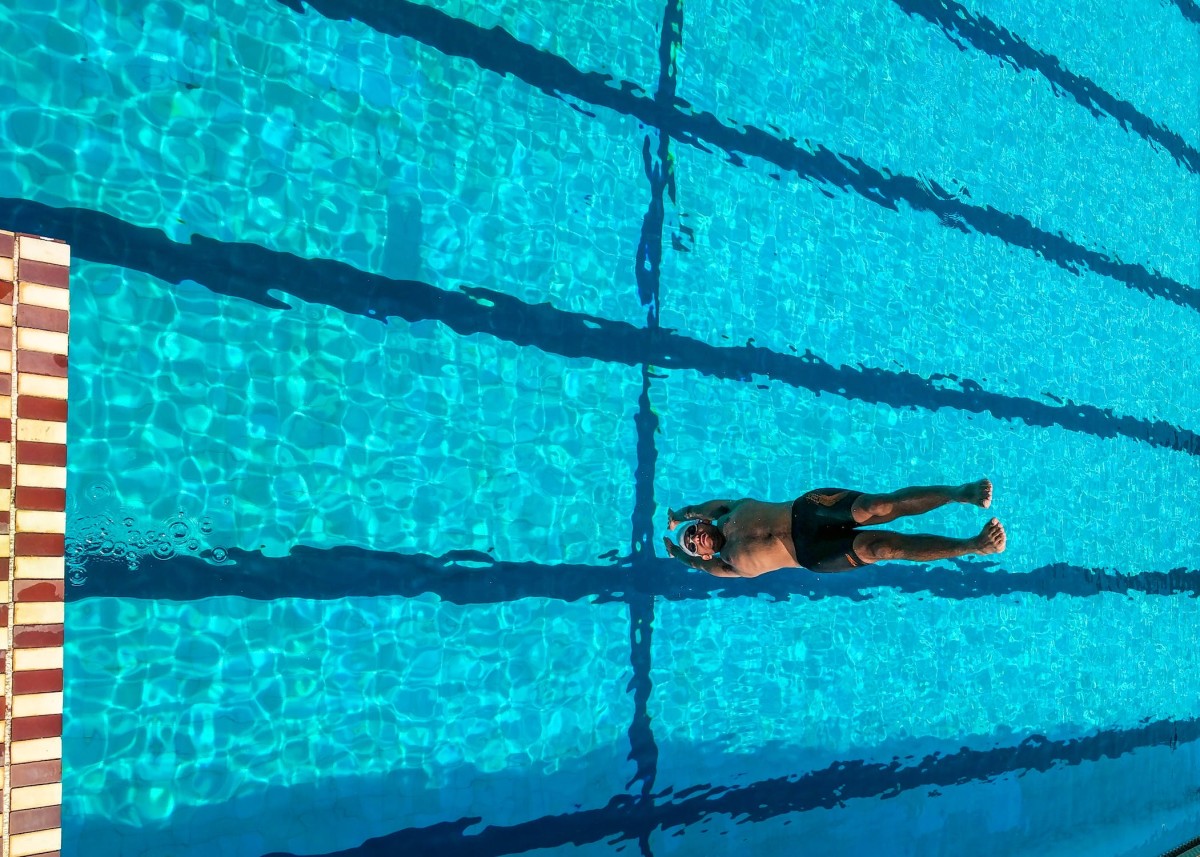Fresh Water Pool or Salt Water Pool
Maintaining Balance in Pool Water
Maintaining the chemical balance in your pools water is imperative to bather health as well as a sparkling clean pool.
There are two methods for producing that sparkling pool. One is by maintaining a "Fresh Water Pool" and the other is a "Salt Water Pool".
Its really up to an owner's preference as to which system he/she decides to go with. Both fresh water and salt water are a continual maintenance. The fresh water pool is less expensive to start up than the salt water, but over a period of time, the salt water pool will save you more.
CLEAN, CLEAR, FRESH POOL WATER doesn't it make you want to dive right in!

.....OR DOES YOUR POOL LOOK MORE LIKE THIS?!

Which type of pool would you choose to have?
Chlorine for the Fresh Water Pool
Red, burning, eyes, green hair, dry, flaky skin, these sound like the symptoms of some horrible disease! Actually its the effects of chlorinated water that you've been swimming in.
There's a website that has instructions on how to use ordinary household products for chlorinating or brominate your pool here. There is a warning for certain types of pool systems so read everything carefully.
To maintain a freshwater pool chemicals such as bromine and chlorine. Chlorine is added several times a month to keep the ph level balanced. Reference the table below for proper chlorine levels.
Chlorine Levels for Fresh Water Pools
pH Level
| Results
|
|---|---|
>8.0
| Eye Irritation, Skin Irritation, Infectious Water, Plaster & Tile Staining
|
7.8 - 7.2
| Ideal. Still produces eye, skin irritation.
|
<7.0
| Eye Irritation, Skin Irritation, Metal Pipe Corrosion, Etching of Cement & Plaster!
|
Bromine
Bromine is an alternative chemical to chlorine for your pool. It is stable in high temperature water such as hot tubs. Bromine is effective at sanitizing, disinfecting and oxidizing water. Bromine levels, like chlorine must be checked several times a month. Sunlight evaporates bromine quickly. The drawback for Bromine is the expense. Bromine is far more expensive than Chlorine. When a chemical is evaporated by the sun and needs to be added continually, expense can be an issue and Bromine is expensive.
Below is a table for correct Bromine levels in your fresh water pool.
Bromine Levels for Your Fresh Water Pool
Bromine Level
| Impact
|
|---|---|
2.0 ppm
| Industry standard but poor water conditioners may result quickly.
|
2.5 - 4.0 ppm
| Ideal. Controls bacteria, living organisms and amonia
|
>4.0
| At the cost of Bromine the impact on your wallet is going to be the only thing you feel here!
|
Bromine levels, depending on bather load, heat and humidity should be checked three to four times a week.
Salt Water Pools
A salt water pool use a control box that causes the salt to produce chlorine. The chlorine produced is a mere fraction of the amount used in a fresh water pool.
The levels are so low that the usual red, irritated eyes and dry skin accompanied with fresh water pools is all but eliminated. Eye irritation may still exist in a salt water pool but far less than fresh water. There is no weekly testing of the water as you need to do with a fresh water pool. The pool only needs regular vacuuming for the larger particles the control box can't filter out.
The drawback of a salt water pool is the initial cost. To set up the you must purchase the control box that can run a couple of hundred dollars. Once this is in place your only expense is the salt which is at a minimal cost of about dollars for a fifty pound bag that will last a few months.
Another drawback of the salt water pool is calcium deposits can occur inside the pool.
Now that you've read the pro's and con's of each type of system, what pool would you like to have?
In the Long Run
In the long run a salt water pool will cost less money to maintain and have minimal affects on bathers (irritated eyes) compared to a freshwater pool. Its really up to the pool owner which system suits him/her best and which is most cost effective at the time.
© 2012 Joanna









